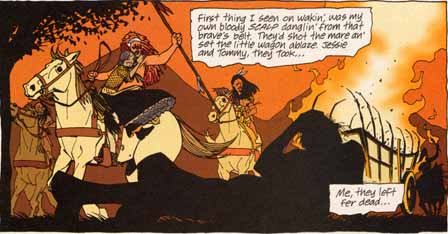It's this flavor of comments that really get my goat—not because they are particularly insulting (although they can be), but because they reveal a fundamental lack of understanding about the significance of pop culture.
Popular culture (or "pop culture") is not something created in a vacuum. Nor do the stories it presents emerge out of thin air. Whether we're talking about musicians or movies, pop culture ultimately reflects the values of its time. Take, for example, The Birth of a Nation, which was released in 1915 and quickly became the highest-grossing movie of the silent film era. In Birth of a Nation, black men are depicted as violent and hypersexualized aggressors who victimize white women. White Klansmen are painted as heroes who rescue white women from such predators. The popularity of this film reflects the popularity of such sentiments about race and politics of the time.
It's an especially damaging trend because people of color are so underrepresented in pop culture. In fact, over the last several years, Asian Americans have represented less than 1% of primetime television regular or leading roles—despite the fact that we are nearly 5% of the national population. Asian-American kids growing up in the 80s share a common tale of woe: in the playground, we were inevitably referred to as Mr. Miyagi or Long Duk Dong, because these archetypes of the sensai and the dorky buffoon were the sole reference many Americans had to define their perception of Asian people.
Similarly, Native girls get called "Pocahontas" occasionally. That comes from the Disney movie, obviously, not from some history book or documentary on a 400-year-old incident.
The media is what propagates and perpetuates stereotypes, people. If you're still in denial about this, get over it.
For more on the subject, see "Public" Causes Stereotypes? and Valenti: Movies Are Merely Movies.
Below: What people today "know" about Indians...from a 19th-century Wild West show?!


No comments:
Post a Comment